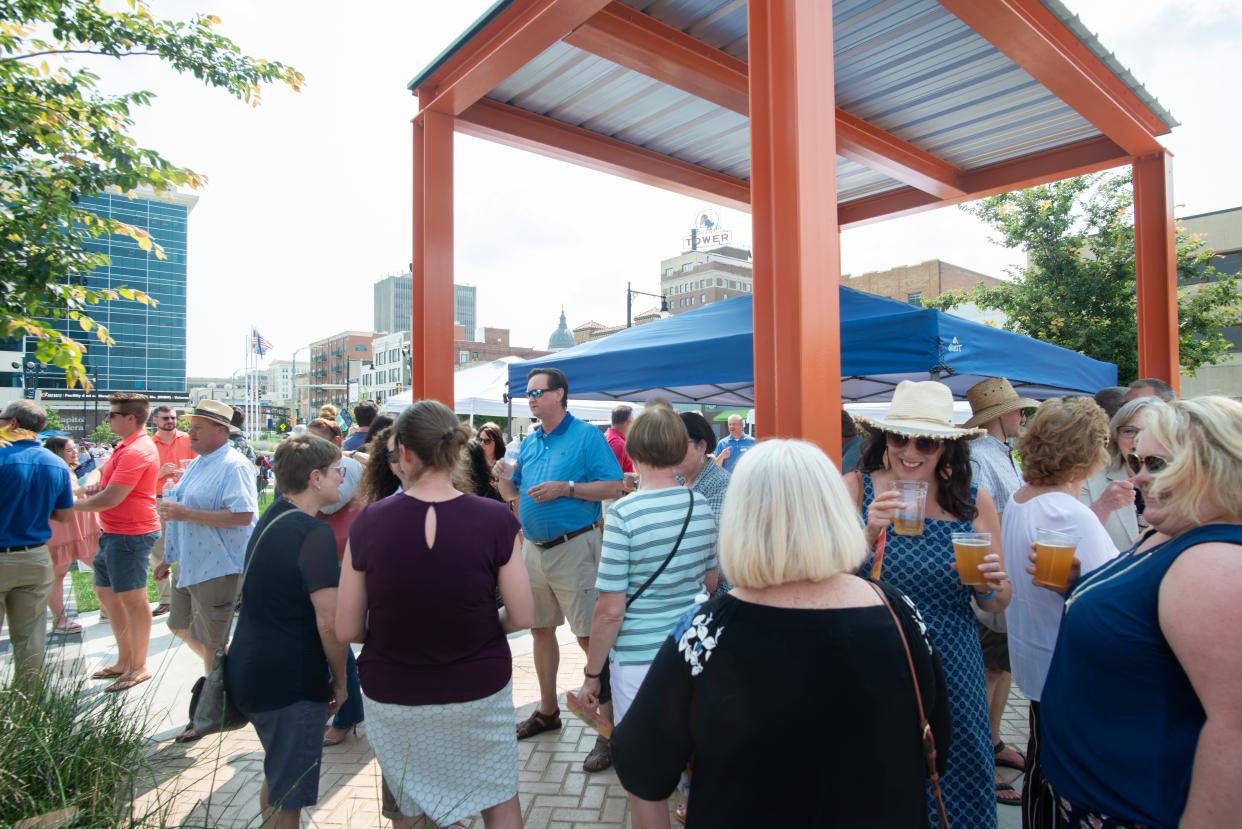Topeka is one step closer to changing Kansas law on public alcohol consumption

Local Topeka officials are one step closer to changing a Kansas law to make it easier for event organizers to allow public alcohol consumption downtown and in NOTO.
"Allowing visitors to get a drink from one of the seven establishments to enjoy while taking in all that NOTO has to offer would add to vibrancy of the district," said Thomas Underwood, executive director of the NOTO Arts and Entertainment District.
In 2017, the Legislature authorized cities or counties to create special districts called common consumption areas where patrons can purchase, consume and carry alcohol off of a licensed property, such as a bar or restaurant. Patrons can then legally walk within the area while sipping a beer or other drink.
But the state's current law requires streets to be blocked off, which is Underwood said is impractical for NOTO businesses, meaning the district can't take advantage of the law.
He pointed to live music at Redbud Park on First Fridays, the summer concert series and special events, "but yet you can't purchase a drink from the Wheel Barrel or the Norseman or the four or five other entities in NOTO to enjoy the music with the drink because we have that restriction where you can't cross the street."
The city is pushing to eliminate the street closure requirement with HB 2059, which passed the House 116-6 on Thursday. It must still pass the Senate before going to the governor.
More:Want to drink alcohol at the Kansas State Fair? Under a new law, it's now easier to imbibe
Curtis Sneden, president of the Greater Topeka Chamber of Commerce, testified that the current law makes it implausible for a common consumption area to connect amenities on both sides of a street. Underwood said closing streets means losing parking spaces and access for loading zones, leaving a common consumption area not viable.
Lobbyist Whitney Damron, representing Topeka, pointed to Iron Rail Brewing and downtown gatherings at Evergy Plaza as an example.
"Our business owners would like to be able to sell their patrons a beer or cocktail or something and be able to walk across the street and go to that concert," Damron said. "We can do that — if you block off the entirety of the streets."
State legislators were keen to an argument for local control of public safety regulations of common consumption areas.
"Local governing bodies are best situated to interact with stakeholders and make decisions on how best to build out, monitor and police common consumption areas," said Rep. Ron Bryce, R-Coffeyville.
"I think we can trust our local governments to provide safe common consumption areas that work best for their communities," said Rep. Jo Ella Hoye, D-Lenexa.
This article originally appeared on Topeka Capital-Journal: Topeka proposes Kansas law change on public alcohol consumption areas

